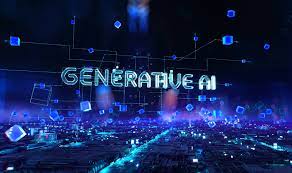By Mr. Prem Raj Soni
In the fast-paced world of today’s workplaces, employees often find themselves grappling with high levels of stress and burnout. The demands of modern work environments, including tight deadlines, heavy workloads, and the constant need to stay connected, can take a toll on mental well-being. Fortunately, artificial intelligence (AI) has emerged as a potential solution to address these challenges. AI-powered tools for workplace stress relief are revolutionizing the way employees cope with stress and maintain their mental health.
Artificial Intelligence (AI) can reduce stress in the workplace through various mechanisms and applications designed to support employees’ well-being. Here are some ways in which AI can effectively reduce stress at work:
- Real-time stress monitoring: AI-powered tools can continuously monitor employees’ behaviors, communication patterns, and physiological data to detect signs of stress. By analyzing these data points, AI can identify when an employee is experiencing increased stress levels. This early detection allows for timely intervention and support.
- Personalized stress management: AI can provide personalized recommendations for stress management based on an individual’s unique needs and circumstances. These recommendations can include mindfulness exercises, relaxation techniques, or tips for better time management. By tailoring solutions to each employee, AI ensures that interventions are more effective.
- Optimizing workload: AI algorithms can assess workloads and distribute tasks more efficiently, preventing excessive work-related stress. This can involve optimizing schedules, reassigning tasks, or automating repetitive and time-consuming processes to reduce the burden on employees.
- Enhanced work-life balance: AI can help employees achieve a better work-life balance by suggesting ways to optimize their daily routines. This might involve setting boundaries for work-related notifications outside of business hours or suggesting when to take breaks to recharge.
- Mental health support chatbots: AI-driven chatbots can provide immediate and confidential mental health support to employees. These chatbots can engage in conversations with individuals to offer emotional support, guide them through relaxation exercises, or provide information on accessing mental health resources within or outside the organization.
- Reducing administrative tasks: AI can automate administrative tasks such as data entry, report generation, and appointment scheduling. By streamlining these processes, employees can focus on more meaningful and less stressful aspects of their jobs.
- Predictive analytics: AI can use historical data to predict periods of high stress or burnout risk for employees. This proactive approach allows organizations to implement preventive measures before stress levels become overwhelming.
- Training and skill development: AI-powered training programs can help employees develop stress management skills. These programs can simulate stressful scenarios and guide employees through effective coping strategies.
- Employee feedback analysis: AI can analyze employee feedback from surveys, reviews, and feedback forms to identify trends and issues related to stress and workplace satisfaction. Organizations can then use this information to make targeted improvements.
- Health and well-being apps: AI-driven health and well-being apps can track and analyze employees’ physical activity, sleep patterns, and nutrition. By providing insights and recommendations, these apps can contribute to overall stress reduction and improved health.
- Employee assistance programs (EAPs): AI can enhance the effectiveness of EAPs by providing employees with instant access to resources and support whenever they need it, ensuring that help is available 24/7.
AI has the potential to reduce workplace stress significantly, however, it should be integrated into the workplace with care and consideration for ethical and privacy concerns. Human interaction and support are irreplaceable and should remain an essential component of any stress reduction strategy, with AI acting as a complementary tool to assist employees in managing their stress effectively.

(The author is Prem Raj Soni, Founder & CEO – Exchange 4 Talent, and the views expressed in this article are his own)






